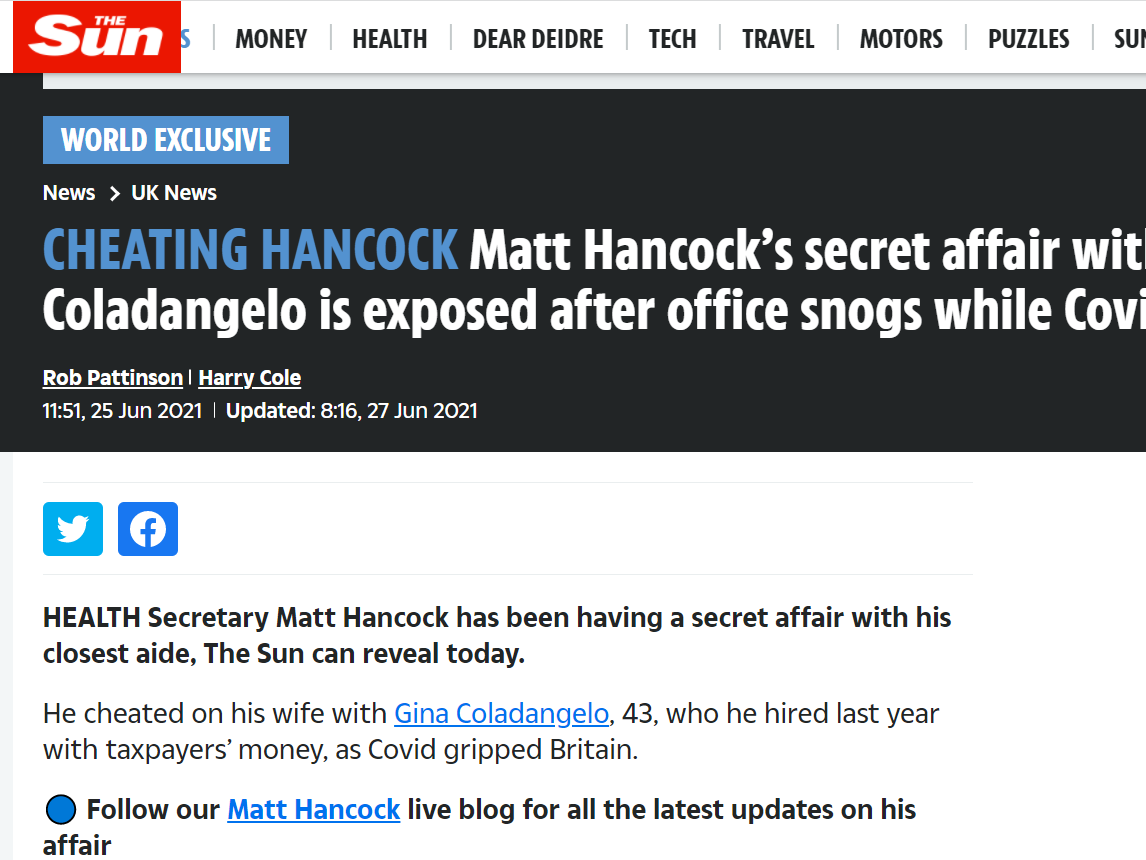
Publishers are being urged to show respect for the “time, effort, and money” put into scoops and original reporting at rivals by getting involved in a new system for fair citation across the industry.
The Association of Online Publishers has created a “link attribution protocol” to help tackle what has become “a bit of a frustration” among editorial and audience development teams.
Richard Reeves, managing director of the Association of Online Publishers, told Press Gazette publishers had realised “we don’t always help ourselves as effectively as we could”.
He said the new protocol would take publishers “one step closer towards a fairer, more transparent digital ecosystem”.
The new protocol, developed after concerns were raised by the AOP’s audience development steering group, asks participants to set up a specific email address so they are more easily contactable by rival titles who may feel they have not referenced exclusive content correctly.
Currently everyone agrees on linking back in principle but it does not always happen and the process for dialogue between publishers is “relatively complex”, Reeves said.
It comes after Press Gazette revealed Sun insiders believe their original scoops are being buried in search results by rival titles who are effectively ripping their content off.
The Sun’s head of SEO Carly Steven said: “We believe that fair attribution for original reporting is vital to maintaining a healthy and diverse digital ecosystem. Our exclusives are the lifeblood of our brand, and it is clearly in the best interests of both publishers and readers to promote and reward the energy, passion and investment they represent.
“We fully support AOP’s new link policy and look forward to working more closely with all publishers to make this vision a reality.”
Reeves said: “Fair citation not only shows respect for the time, effort, and money invested in generating premium-level content, but is also vital for maintaining publishers’ visibility, traffic and ultimately, survival.”
The AOP says links should be “follow” rather than “nofollow” for SEO purposes, as “nofollow” tells search engines to ignore that link.
The AOP says: “Follow links are important because they pass link value on to the recipient. Publishers should be supporting each other and doing everything they can to make sure original reporting is rewarded.”
The trade body also advises that hyperlinks should be anchored on the text of the title that broke a story, and that requests should only be made within a reasonable time frame.
[Read more: The Sun’s Harry Cole slams ‘continuing erosion of journalistic rights’ after Hancock scoop win]
The AOP gave The Sun’s scoop of Matt Hancock’s affair with an aide as an example of “indiscriminate” linking back across the industry even though many publishers cited the newspaper by name.
It said the BBC had linked back to The Sun, as did The Mirror although with a “nofollow” link, but that many others did not and some only embedded a Twitter post of The Sun’s front page.
LBC owner Global’s head of editorial and SEO Steven Wilson-Beales said: “Crediting original journalism ensuring both attribution and website traffic is vitally important to digital publishers. It enhances consumer trust and helps the reader to understand the value of quality content and editorial teams so as such we’re very supportive of the link attribution protocol.”
Several other media organisations, including Bauer Media, are already on board. The AOP is opening it up to non-members to get as many publishers as possible taking part.
Reeves said: “I’ve been really pleasantly surprised by the level of interest that this has created, and by that I’m talking about other wider press associations, initiatives like the Trust Project, organisations that are all effectively working towards the same goal which is ensuring that quality is surfaced, that we address mis- and disinformation within our industry and make it easier for people to navigate in order to find quality.”
Citing the growth of social media and its impact on ad spend, audience behaviour and mis/disinformation, Reeves added: “What journalists recognise [and] where that common pact is founded from is this sense that what we are about is employing professional journalists of integrity to create original content that is both verified and trustworthy. And so when there’s a common enemy then it does create greater solidarity in a community.”
Email pged@pressgazette.co.uk to point out mistakes, provide story tips or send in a letter for publication on our "Letters Page" blog
